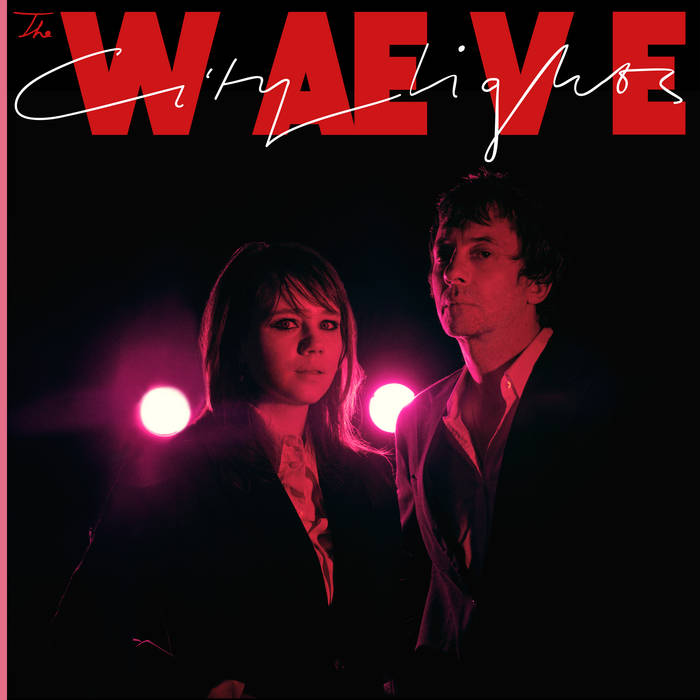City Lights, the second album from Graham Coxon and Rose Elinor Dougal’s The Waeve, opens with the tonally bewildering title track – a futuro Roxy Music or less depraved version of The Moonlandingz. Interstellar glam meets a glaring excavation of Bowie’s Low. Elsewhere, heavy, expansive bass and chugging motorik pulses summon a scuzzier Goldfrapp with a 70s chamber rock rhythm section. This dissonance between worlds and timeframes is an example of the scope of City Lights, as Coxon and Dougal venture beyond conventional boundaries to push the frontiers of their creativity.
Artists typically utilise solo or side projects for creative renewal, enabling them to transcend the limitations of their previous work. City Lights conveys the impression that the duo have harboured these ideas from the outset, the inevitable freedom of not being constrained to the need to create a commercially successful ‘pop song’ allows for greater stylistic expression. City Lights is multifaceted, metamorphosing between a lo-fi bedroom recording and bold, lofty production, encompassing elements of edgy synthpop and motorik post-punk, cinematic pastoral folk and freefall jamming.
Conversely, Coxon’s trademark gusto infiltrates the album, particularly on the opener – a track which possesses a melody conspicuously similar to Blur’s ‘Coffee and TV’, the indulgent, agitated guitar squalls perhaps jarring to those of the more Broadcastian persuasion. But Rose Elinor Dougal redresses the balance, her velvety voice offsetting Coxon’s familiar Southern English drawl, injecting some essential softness into an otherwise unmistakably Blur-adjacent work. Though in fairness, Graham Coxon on sax duties is a masterclass in elegance and energy, boasting the sweeping emotive power of the instrument one minute and a manic velocity – think Andy Mackay on For Your Pleasure – the next.
The duo tackle candid feelings of despair and hope, with lyrics finding poetry in oblivion, neurosis and familial love. But it’s the surrendering of our younger, precarious selves, the acceptance of the complicated comfort that brings, that sticks: “all those lost and endless nights meant nothing you know…all that wasted time with broken people”, sings Dougal on the kaleidoscopic ‘Girl of the Endless Night’, an acid folk rendering of Strawberry Switchblade-esque indie-gothic opulence. On the sleazy, sardonic Broken Boys, Coxon shares Dougal’s retrospective contempt: “Fuck your party, you make me wanna blow my soul away.”
The filmic ‘Sunrise’, is an enveloping, crescendo-fuelled epic that could be The Beach Boys if they swapped balmy Californian optimism with English countryside melancholy. Looser and more personal, fragile but still pissed off, City Lights – next to the band’s self-titled debut – portrays the classic tale of a creative harmony that blooms over time, no longer tempered by the tentativeness that comes with getting to know one another.


